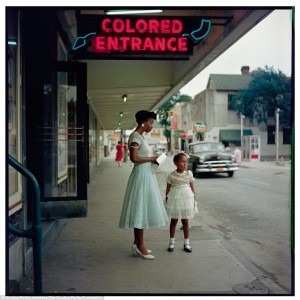
Why generalizations are ill-advised
In posts that are on the horizon, I will write about our day trip to nearby Bijagual, buying a car in Costa Rica, and driving into Panama. Today, however, I’d like to discuss a topic that is not exclusive to Costa Rica.
One of the benefits of a sabbatical (or detriments, depending on how you perceive this particular entry) is simply having the time to think. Before we came to Costa Rica for our year-long, family sabbatical, not only did we do an intense amount of research, but we also visited the country several times. As we analyzed the information we gathered, we came across numerous sources which discussed the negative side of the people here. To put it bluntly, we were told that beneath the picturesque, friendly, “pura vida” façade, Costa Ricans are corrupt, unskilled, and lazy. Anytime someone presents a generalization about an entire group of people as if it is an absolute, I approach it with suspicion. I don’t chastise them for going outside of the boundaries of political correctness (which is a term and a concept I despise). I merely assess whether what they are presenting as a fact is indeed factual.
Is there corruption in Costa Rica, especially with respect to the government? Yes. Are all Costa Ricans corrupt? No. Is the level of training for certain professions performed to the same standards of the U.S.? No. Does this mean that all Costa Ricans are unskilled? No. Is there rampant laziness stemming from the laid-back culture? No. In fact, a lot of the people we’ve gotten to know work up to 12 hours a day, 6 days a week. Generalizations aren’t wrong because they aren’t a polite thing to do, they are wrong because they are inaccurate. They are wrong in the same way that someone believing water freezes at 75 degrees is wrong. If you told me that was the view you held, I wouldn’t make a moral judgment about your character. I would just conclude you didn’t pay attention very well in science class or in life.
With so much natural beauty around us and the luxury of time to enjoy it, we often don’t even turn on the television. We have, however, kept up with global news through various sites on the internet. Watching the events unfold in Ferguson, Missouri from afar was interesting. The images put on display for the world to see the racial tensions that still exist in our country. Viewing the coverage and reading the comment boards reminded me of how generalizations are dangerous. There are black Americans who believe that, regardless of whether they follow all of the rules, they will still be held back due to racism. There are white Americans who believe that black people too often play the “race card” and exaggerate the current effects of racism by portraying themselves as victims, and just need to get over the past in order to effectively move forward. I doubt I can bridge this vast, racial divide comfortably on a beach from my laptop in Costa Rica, but it’s worth a shot, right? Let me first attempt to dispel a few notions.
Notion 1. Because history is in the past, it has no bearing on the present
I sincerely understand the position of white Americans who hold the following view. “I never owned slaves, my ancestors never owned slaves, and my relatives migrated here well after the Civil War. So why are you punishing me simply for being white?” Even though there is an argument that certain benefits have accrued to people who weren’t involved in any of the above and those advantages still have an impact today, I don’t want to get into that discussion. If you’re a white person who has worked hard and have become successful due to that hard work, it’s insulting to hear someone say your achievements are exclusively because American society is designed so that it is easier for you to navigate. That claim feels like it’s dismissing all of the effort you have put in. Instead, I’m going to briefly focus on American history since it’s instrumental in comprehending race in America.
Africans were brought to the U.S. with the singular understanding that they would be kept as a permanent underclass. There was simply no intent for Africans in America ever to be equal. I am not stating this to be radical. It’s just the truth. The U.S. Supreme Court clearly articulated this position in the Dred Scott case of 1857. The question in Dred Scott was:
“Can a negro, whose ancestors were imported into this country, and sold as slaves, become a member of the political community formed and brought into existence by the Constitution of the United States, and as such become entitled to all the rights, and privileges, and immunities, guarantied by that instrument to the citizen?”
Here are excerpts of the U.S. Supreme Court’s decision:
“We think they are not, and that they are not included, and were not intended to be included, under the word “citizens” in the Constitution, and can therefore claim none of the rights and privileges which that instrument provides for and secures to citizens of the United States. On the contrary, they were at that time considered as a subordinate and inferior class of beings, who had been subjugated by the dominant race, and, whether emancipated or not, yet remained subject to their authority, and had no rights or privileges but such as those who held the power and the Government might choose to grant them.”
“The legislation and histories of the times, and the language used in the Declaration of Independence, show that neither the class of persons who had been imported as slaves, nor their descendants, whether they had become free or not, were then acknowledged as a part of the people, nor intended to be included in the general words used in that memorable instrument.”
The upshot is this. If you take the foundation of excluding black Americans from the Declaration of Independence and the U.S. Constitution, add in the Slave Codes (which codified concepts like making it illegal to teach a slave to read or write), the Black Codes (which restricted black Americans’ right to own certain property and to freely conduct business), and Jim Crow laws (which codified racial segregation), the picture becomes clear that black Americans aren’t just being paranoid about “the man” holding them down. It was real. It is undeniable that from the 1600’s to at least the late 1960’s, there was a consistent, concerted, and strategic effort to prevent black Americans from advancing in the U.S. It wasn’t an unintended byproduct of a public policy decision gone awry, it was the intended outcome.
Yet, here’s the tricky part. Even if those who say that black Americans today need to simply move forward despite this past are indeed racists, or they are people who aren’t necessarily racist, but are minimizing the impact of this dreadful history for their own agenda, they still are correct. The challenge of moving forward is acknowledging the impact of these atrocities, while at the same time not using them as a rationalization to forever be a victim. We, as a people (meaning all Americans), need to ascend above our checkered past. And we, as a people (again, meaning all Americans), must desire a merit-based society where the entirety of our population has a shot at contributing to it. After all, what other option is there?
It’s interesting to be from a country that never really wanted you, while having a tremendous amount of love for that country at the same time. Maybe it’s because my dad was in the Army most of my life, maybe it’s because I grew up during the Cold War, or maybe it’s because I simply understood how fortunate I was to have been born in the U.S., but I’ve always been proud to be from America. I wasn’t really conscious of how “American” I was until I went to Spain with Canadians.
They had Canadian flags on their backpacks and always wore Canadian buttons when they traveled. Their observation was that, as Canadians, they got treated better than Americans because so many people around the world thought Americans were rude and conceited. Thus, they suggested that I, too, don a Canadian button. I’m pretty sure my response proved their point about American arrogance as I told them, with a look of utter contempt at the mere notion, that there is no amount of money they could ever pay me to pretend to be from Canada. Nothing against Canada, but the U.S. is my country. Despite our complicated history, it’s my home. Embracing it as such, and then taking advantage of the opportunities that hopefully present themselves to you in it, arguably is the best path to success.
Notion 2. Black parents don’t equip their children with proper skills to succeed
There seems to be a perception that black Americans fail to teach their children to strive for greatness. I’m sure that does happen in some (maybe even a lot of?) households. Of the black professionals I know, however, not only were they taught the importance of working hard, but they have instilled this value in their children. As a young child, my father expressed to me that, fairly or unfairly, anything I did would be interpreted as a representation of black people. Moreover, he told me that certain stereotypes existed and that I needed to work harder than others to overcome those stereotypes. I’m not saying that telling a kid he will be letting a whole race of people down if he gets a B on a test instead of an A is a suitable or healthy approach, but I’m sure I’m not the only person of color who was given this talk from a parent and, in turn, felt an obligation to achieve.
For me, having African friends and employees has shed light on the opportunities that exist in the U.S. more than anything else. Even though they come from countries that might not be as stable or as wealthy as the U.S., African immigrants are among the most educated who land on our shores. Like all immigrants, they migrate for a chance to better their lives. When they arrive, they might have to field questions that are ignorant and/or racist. But, they are able to view negative experiences like this as minor annoyances while they focus on the task at hand. They conclude the opportunities presented by their new country outweigh the indignities they might suffer while in it. And, let’s face it, if you’re from a place that has been ravaged by corruption, poverty, or civil war, an ignorant American making a comment to you about starving Africans living in mud huts pales in comparison to the opportunities that are presented to you here. Thus, these Africans might not like those occurrences and might be offended by them, but they press on and succeed nonetheless, and teach their children accordingly.
Notion 3. Black people are more violent than other races
If black people are genetically prone to violence, the same would hold true for Africans who migrate to the U.S. After all, they wouldn’t be able to help themselves since it would be in their genes. Except, here’s the thing. All immigrants, including African immigrants, engage in antisocial behavior exponentially less than people born in the U.S. African and Asian immigrants engage in violent behavior 4 times less than native born Americans, Latin American immigrants engage in violent behavior 3 times less than native born Americans, and European immigrants engage in violent behavior that is roughly at the same level of native born Americans. In fact, each year an immigrant spends in the U.S., he or she is more likely to become violent.
As for black Americans, I hesitate to list a bunch of statistics because we could get bogged down in the numbers. I would, however, like to discuss a few figures to try to set the record straight. We’ve all heard the quote that there are more black men in jail in the U.S. than there are in college. Well, this statistic isn’t true. There are about 850,000 black men in prison or jail and about 1.3 million pursuing a post-secondary education. When we talk about black Americans as a whole, there are about 1 million who are imprisoned and about 2.6 million on probation or on parole, for a total of 3.6 million people in the “correctional” system. There are roughly 4.6 million black Americans in the U.S. with a 4 year college degree or higher. Among those degreed individuals, there are at least 1 million professionals who have careers like attorneys, physicians, dentists, engineers, architects, professors, and teachers to name a few.
Now, I am not suggesting the above numbers are good or anywhere near where they should be. I am also not suggesting that black Americans are not incarcerated at a higher rate than other races. They absolutely are. But I am saying that a black person is more likely to have a degree than to be in the penal system. Moreover, I am saying the proclivity to view most black men as violent thugs is simply erroneous.
With respect to crime in the U.S., a disproportionate number of black men are incarcerated for non-violent drug offenses. We know for a fact that blacks and whites use certain illicit drugs to the same degree, but that black people get arrested and prosecuted for this crime at an exponentially higher rate. As for violent crime, the most common crime for black men in state prisons who have been convicted of violent offenses is robbery, while that of white men who have been convicted of violent offenses is rape or sexual assault.
Concerning violence in general, world history bears out that no race is any more or less violent than any other. Dictators responsible for killing millions of people have come from every corner of the globe. There were Africans like Idi Amin (Uganda) and Mengistu Haile Harem (Ethiopia), Asians like Pol Pot (Cambodia) and Mao Zedong (China), and Europeans like Josef Stalin (Soviet Union) and, of course, Adolf Hitler (Germany).
Notion 4. Black people are more likely to have children out of wedlock
A lot of commentators who discuss the ills of the “black community” postulate that the problems in it stem from fatherless homes. The issue is often presented as if it is a phenomenon unique only to black people. Prior to the 1950’s, black women nationwide were more likely to be married than white women, and the percentage of black families with children that were headed by a single parent was as low as 9%. The numbers have changed drastically since then, but those changes aren’t because of race. Furthermore, if people of African descent somehow had a genetic predisposition to engage in this behavior, wouldn’t we see it play out globally? Not only is this not the case, it is the exact opposite in many situations.
At roughly 177 million people, Nigeria is Africa’s most populous country. With all of those black folks in Nigeria, the non-marital childbearing rates there must be out of control, right? Well, they are 6%. Let’s see how that compares to other countries. Iceland (67%), Estonia (58%), Slovenia (58%), Bulgaria (57%), France (56%), Norway (55%), Sweden (54%), Belgium (52%), Denmark (51%), U.K. (48%), Netherlands (47%), Portugal (46%), Latvia (45%), Hungary (45%), Czech Republic (43%), Austria (42%), Finland (42%), U.S. (41%), Luxembourg (37%), Spain (36%), Slovakia (35%), Ireland (35%), Germany (35%), Romania (31%), Lithuania (29%), Italy (28%), Malta (26%), Serbia (25%), Poland (22%), Switzerland (20%), Liechtenstein (20%), Cyprus (19%), Croatia (15%), Macedonia (12%), Greece (8%). The current numbers for white American women are about 30% and for black American women are about 70%. I am not arguing that this latter number is not astronomical. It is. But it can’t be high simply because of race. If that were the case, then Nigeria, or Kenya, or every other sub-Saharan African country’s numbers would also be high, and they are not.
Notion 5. Black Americans only complain about violence when it’s white on black
If you haven’t heard black Americans discussing black on black crime, then you haven’t been listening. Since victims of crimes and perpetrators of crimes are typically the same race, black Americans have a vested interest in addressing the issue of black on black crime. As such, it remains (and has been for decades) an ongoing conversation. Those discussions happen in informal settings like the corner store. They happen at anti-violence marches and vigils. They happen at church, community meetings, and symposiums. They happen through social media. They even happen in music. The concept you will hear most espoused in these environments is about taking personal responsibility for one’s actions, and not about blaming others for one’s plight. Whether any of these efforts has been effective is a separate issue from whether people are trying to make a difference. They are. So let’s stop the narrative that black people only care about violence when it comes at the hands of a white person.
In general, whether it’s judging a Costa Rican (which is how this stream of consciousness began) or anyone else for that matter, it’s important to bear one thing in mind. Populations aren’t homogenous. There are conservative, liberal, religious, non-religious, straight, gay, educated, uneducated, wonderful, and absolutely horrible people of every race. Furthermore, since racial groups are heterogeneous, no one person could ever speak for a race of people. Al Sharpton and Jesse Jackson are entitled to their opinions, but neither is the sole spokesperson for black Americans just like neither Rachel Maddow nor Sean Hannity is the sole spokesperson for white Americans.
In wrapping up, I’ll offer a tip which goes back to my high school English teacher. There is a difference between a regular conjunction and a subordinating conjunction. In terms of race, you have a much greater likelihood of stating something factual if you use a regular conjunction. Here’s how it works. “That guy is a thug and he is black” might be a 100% accurate statement (regular conjunction). “That guy is a thug because he is black” is simply wrong (subordinating conjunction). I don’t mean it’s wrong in an emotional, moral, or politically correct sense. I mean it’s wrong because it’s not supported by the facts, just like stating that the Earth is flat is wrong because it’s not supported by the facts.
There you have it. Racism solved (what’s the symbol for sarcasm?).






Well – done. It is good to read that you are doing more than staring at your naval on your sabbatical. It was a very interesting read. Thanks for sharing this.
Thanks, David. It’s funny how we’re finding a way to stay extremely busy. But it’s a good kind of busy.
Very well written. I greatly appreciate the time you invested in research and reflection to provide such a thorough presentation. Providing history, particularly from a legalistic stance soldified the points. My hope is that each reader will internalize the content and implement the tools necessary to debunk the myths prevalent in our society. This is the only way we can gain understanding ,obliterate ignorance, and become unified as a nation of American people.
It’s nice to hear from you Mimi. Agreed!
Obviously, your sabbatical has given you some research time, my friend. I have to say that you’ve put forward a very well-reasoned and, dare I use the word, articulate position. Racism in America is as alive and well as it was when you left, and incidents like the most recent one in Ferguson (not to mention recent incidents in New York and California, as well as the ones that didn’t make national media) are the eruptions that break through the facade and show us what lies beneath. As Edmund Burke famously said, “Those who don’t know history are doomed to repeat it”.
My biggest fear, however, is the confusion of race, class and economics. MLK was starting to move into this space in his own work, which was what took him to Memphis and, ultimately, to his death. Economics, though a fleeting ally, can make a lot of tough situations look much better. I believe the coming conflicts in the US will become more and more about class and economics than race. Please don’t take that to mean that I believe race will go away and all underresourced people will band together. I do mean it to say that the haves and the have-nots will be going at it soon, and it will get worse before it gets better.
You make an excellent point about “the man holding me back” argument. I would add that, just because someone is paranoid doesn’t mean that people aren’t out to get him. There are benefits that accrue to people of European descent, and denying that it is the case doesn’t make it untrue. Someone used the analogy with me of being born on third base and being constantly told that you hit a triple. That would allow you to wonder why everyone else can’t hit a triple because, one might think, I’m no better or worse than the average guy.
So, my rambling is far less structured and coherent than yours. Admittedly, it’s been a long day, and I should be moving towards sleep rather than writing. However, I wanted to lob a couple of thoughts into this, and commend you on writing something courageous and thought-provoking. I hope that things are well with you and your family. Keep thinking about these things. I hope everyone else joins you, present company included…
I always enjoy your insights. Thanks for taking the time to read and comment.